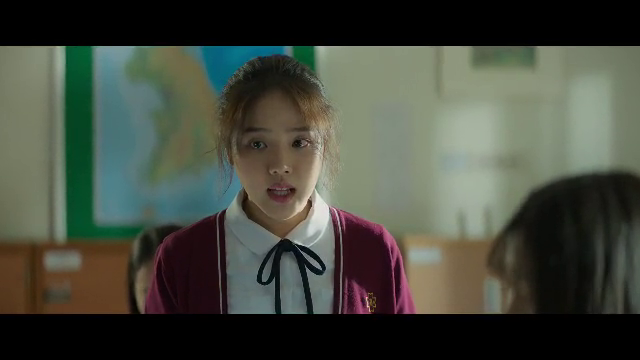
She doesn’t indulge in unwarranted camera movements, no display of loud behaviour to assert the development of an abusive relationship.

Joanna Hogg avoids the usual tropes of portraying the toxic relationships. Anthony shows toxic behaviour, yet Julie is helplessly seduced by him. It reaches to the point to threaten her dream of making the film. Their relationship starts showing cracks as the mystery around Anthony gets deepen. Even when a cocky acquaintance asks her outright what she is doing with a habitual heroin user, she doesn’t get it. Her naivety becomes apparent when she couldn’t understand the needle scar in the arms of Anthony. She surrenders herself to the relationship. Julie, the innocent and gentle loving with no opinion of herself, falls head over heels with Anthony. Though he reeks of arrogance, there’s an undeniable charm & gravitas to him. He takes a keen interest in her story, challenges her ideas, questions her constantly about the story, the reality of it, and the characters. He gives Julie undivided attention and intently listens to the story of her film project. Anthony wears thin air of mystery throughout the film effortlessly.

It’s the story of the baffling toxic relationship Julie ( Honor Swinton Byrne ), a young girl studying in a film school, had with a charismatic, manipulative Anthony ( Tom Burke ), a middle-aged man working in a Foreign Office. It’s restrained and often subtle to misunderstand it for abstract narrative. Joanna Hogg is in complete command of her craft nothing in the film feels contrived or obvious. Unlike several tragic romantic movies dealing emphatically with the whole conundrum of a toxic relationship, British film-maker Joanna Hogg’s ‘The Souvenir’ feels like an aching silence that echoes in eternity. He refuses to take the oath of allegiance to Adolf Hitler and the Third Reich, that could mean execution. The rise of hatred and violence in Germany compels Franz (August Diehl), a modest farmer married to the love of his life, to take conscience and moral stand that throws his life downward-spiral. A Hidden Life | Terrence Malick | DramaĪs envisioned and realised by Terrence Malick, A Hidden Life is a meditative & lyrical biopic questioning the ethos and morality that transcends beyond the confines of 174 mins running length and an individual’s struggle not to succumb to hate. It’s an uncomfortable film that further blurs the ethical and moral lines by the end of it. Anne, who works on teenagers abuse cases, does something unimaginable that morally and legally corrupt her inside out. Their mundane but comfortable life experiences uneasy strain after Peter’s troubled son Gustav (Gustav Lindh) starts living with them. Anne (played remarkably by Trine Dyrholm who imparts vulnerability and power with acute charm) is a successful lawyer, living an affluent life with her physician husband Peter (Magnus Krepper) in a tasteful home.

May el Toukhy’s Dutch drama ‘Queen of hearts’ bold narrative harbours illicit desire and forbidden love which when threatened translates to a nasty outcome where a winner loses everything. A slight, minimal narrative with sparse dialogues harbors mammoth of a complex subliminal conundrum of the lead protagonist George Meskhi (Giorgi Petriashvili), a 28-year-old deputy-chief engineer from an industrial town. The Criminal Mind | Dmitry Mamuliya | Psychological Dramaĭmitry Mamuliya’s glacially paced, taut psychological thriller The Criminal Man (Borotmokmedi ) thematically stems out of Fyodor Dostoevsky’s tranquil spirit. Laced with two incredible performances and dash of organic humour, The Two Popes is one of the best comedies of the year. A pope-mance between two individuals who can’t get along with each other are pushed to resolve their personal difference for a better future of Catholic Churches. He takes us in their amusing, often riddled with existential and spiritual crisis, journey to showcase their vulnerable humane aspect that is often ignored in films. In the backdrop of Vatican leaks scandal that rocked the Catholic Church in Vatican city, Fernando Meirelles crowns a character study of an Archbishop Bergoglio and Pope Benedict XVI.


 0 kommentar(er)
0 kommentar(er)
